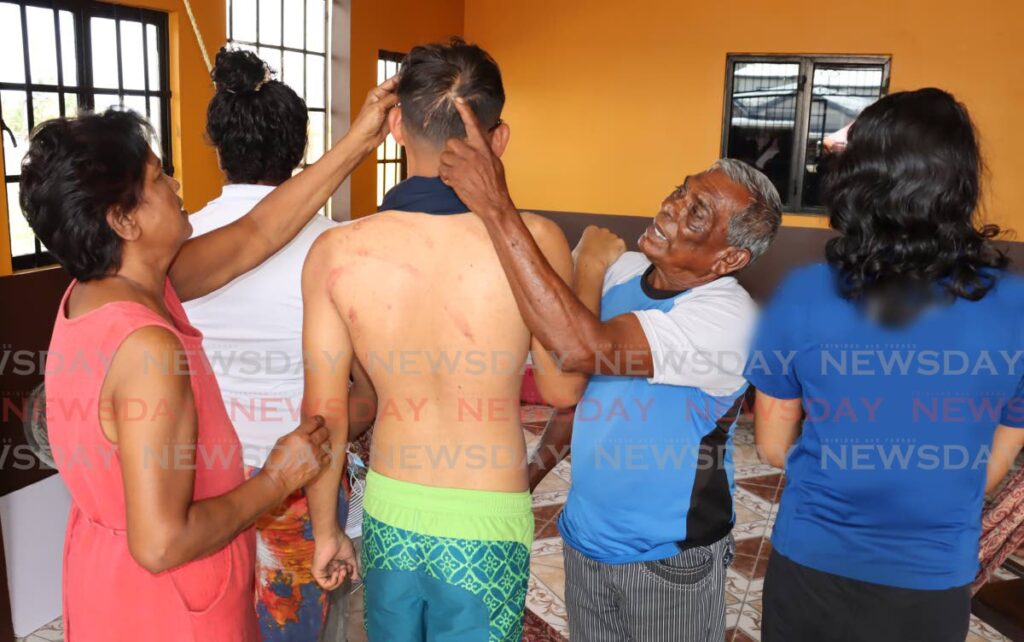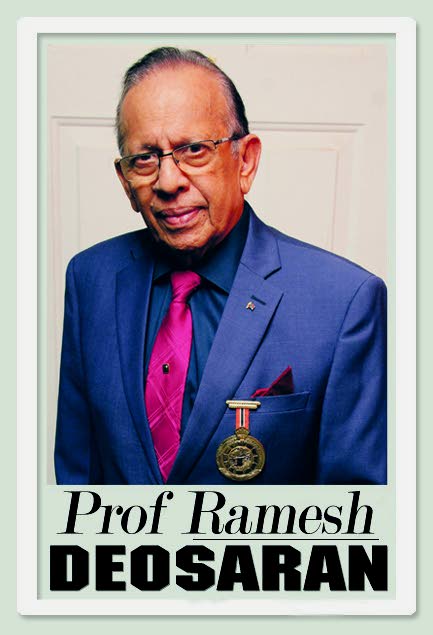Fears, invasions and guns

The escalating criminal invasions of homes and business places, accompanied by the frightening murder rate (now over 165), have sent citizens into a paralysing state of fear.
So much so that revived calls for the death penalty exemplify widespread public desperation. Businessmen make repeated calls for guns.
They have spoken out, seeking a balance between the vicious criminals, policing and politics. After Chaguanas businessman Rishard Ali was killed last week, Mr Baldath Maharaj, president of Chaguanas Chamber of Industry and Commerce, said: "Given what’s happening throughout the country with home invasions, especially in Chaguanas and environs, which may go unreported because persons are not injured or killed, it’s a major concern for the chamber.”
He added: “We are calling on the TT Police Service to step up patrols and operations.”
Now while many invasions occur in Central Trinidad, the related question is: Where are these vicious invaders coming from? Vigilant policing should discover and act accordingly. Former Chaguanas Chamber president Richie Sookhai, said: “You never know where these criminals will attack next week.”
Middle-class Valsayn, Arima, Trincity, Aranguez and San Fernando are under siege. Valsayn Watch Group leaders Dr Neil Gosine and Dr Varma Deyalsingh have compiled a disturbing list of home invasion victims – in broad daylight too. Arima Business Association president Christian Rampersad declared: “While criminals are on apparent warpath against citizens, the hangman is the best way to send a message.”
However, like the TT Chamber of Industry and Commerce, businessman Peter George said such “death penalty” pleadings merely reveal public desperation and instead the “roots of crime” should be tackled.

“Roots of crime?” That’s a never-ending story. Sorry folks, but crime in whatever form or degree is here to stay – inherent in a society like ours. Realistically, it’s more a matter of having transparent crime management, significant crime reduction, effective prevention, high-level detection, expeditious trials and accountability.
Every year, the TT Chamber calls for action against crime. Last November, it warned: "Criminals are now proceeding with increasing brazenness, often armed with the most sophisticated weapons and lack of fear.” Marauding home invasions and brazen murders have gotten worse without relief.
The indomitable pastor Dr Clive Dottin felt that while “criminals believe they are winning the battle,” our leaders “should form a united front in terms of the Government, church, national security institutions and the Opposition.” A useful proposal that has been repeatedly made – since 1977. In fact, such a proposal should be structured alongside the strategic development of deeply-rooted community policing programmes.
Community infrastructure has broken down. There are no more urban villages to “raise a child.” Street signs missing and ignored, congested street-side garages, lines of rusting cars and big trucks parked on narrow streets, clandestine drug dens, etc – all spectacles of and for lawlessness.
Brightness and book-knowledge are not enough for sustainable community policing. It requires passion and positive attitudes. Following the “seven-man” violent home invasion on April 10 in Aranguez, ACP Suren Sagramsingh offered some good advice for sustainable community policing. Noting current police mistrust, he explained: ”You are not going to develop trust in one visit. Problem solving, teamwork and community interaction. You cannot fix anything with one patrol. Everybody must be on board.”
The challenges the Government and the Commissioner of Police face are quite pressing. The society feels unduly brutalised by criminals. The social, economic, psychological and even political implications are becoming more and more troubling.
Citizens are asking for “solutions.” What to do? More police officers? More vehicles and patrols? More body cameras? Stiffer penalties? Speedier trials? Speedier police response to citizens’ complaints? Improved detection rates, rehabilitation programmes, etc? Gangs and their activities come between. Obviously, these are much-mentioned tail-end issues.
Front-burner crime prevention issues include the much-mentioned improper parenting and poverty, school failures and dropouts, unemployment and idle youths, church limitations, the elusive “moral and civic” values, etc. And even in this, it is a probability matter – percentages.
Hence, it would be a mistake to believe that, as visible as they may appear, only the poor, unemployed, school dropouts and children from single-parent homes commit crime.
Even in this, community policing which is usually street-policing here, would have its limitations. The society is organic – socially and psychologically. What is at the top trickles down, making “solutions” quite elusive with crime seeming to pay.


Comments
"Fears, invasions and guns"